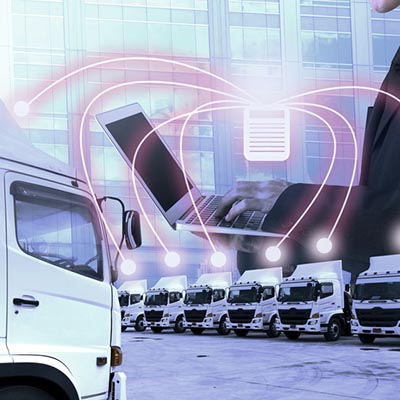Is your business one of the millions that depend on transportation? If so, you’ll know how important coordination is. Your customers also rely on your company’s distribution arm. To make sure that consumers aren’t let down, businesses today are turning to business technology solutions to ensure their transport operations are efficient. Transportation technology is a field where innovation is high and most businesses can expect to be affected by new developments in the near future. Here are three things that you should know about.
Fleet Management
Fleet management depends on various different types of business technology software that, together, provide a comprehensive platform for managing transportation-related operations. Fleet management software typically works by means of a centralized, user-friendly dashboard. From the dashboard you can access all the crucial information you require about your fleet and its services. Almost at a glance, you can see data such as the following, and more:
- • Pending work (in order of priority)
- • Issues that may be holding up progress and impeding operations
- • Administrative information, such as the status of equipment, permits and similar
- • Repair orders and current status
- • Information about employees (Driver’s license and other personal/administrative details)
- • Work orders and their approval status
- • Predictive fleet schedules and maintenance schedules
Fleet management software has been designed to keep track of large numbers of vehicles and drivers. For many businesses it’s really changed the game. As well as keeping track of your vehicles, drivers and deliveries, you can also generate useful information for business planning and decision-making, including what it costs to run the routes.
The Internet of Things (IoT)
The internet of things isn’t just about switching your kettle on remotely and smart homes. The IoT has many benefits for businesses, including aids for asset-tracking. For example, manufacturing companies depend on their procurement and distribution processes. Integrated IoT asset-tracking allows businesses to remotely track vehicles, equipment and stock, for effective asset management. It provides the following advantages:
- Real-time data to aid planning and efficiency
- • Tracking to prevent theft and loss
- • Comprehensive inventory management
- • Predictive analyses to reduce negative impacts
- • Customer service on-point
IoT solutions and asset management software can be a great option for any business dealing with route inefficiency, operating costs and other logistical problems.
The Future – Driverless Vehicles
This is the one everyone’s been talking about – autonomous vehicles. Driverless cars have been around for a while, and there are actually driverless trucks transporting goods on highways in the southwest of the US. Otto, a startup acquired by Uber, made the first autonomous delivery in 2016, when it delivered 50 000 cans of Budweiser from Fort Collins to Colorado Springs. But, though they can navigate open roads without problems, driverless trucks still aren’t advanced enough to make dock-to-dock runs. But innovation moves fast and they may soon be a viable alternative to using conventional shipping companies and human drivers. Among the benefits that are expected are:
- • Reductions in traffic accident rates
- • Reduced in-road congestion
- • Lower costs, leading to lower product prices
There’s still a way to go until driverless trucks are the norm for businesses but, in the transportation technology field, various tried and tested solutions that can benefit your company are available now. Call Quikteks Tech Support at (973) 882-4644 for more business technology information.

